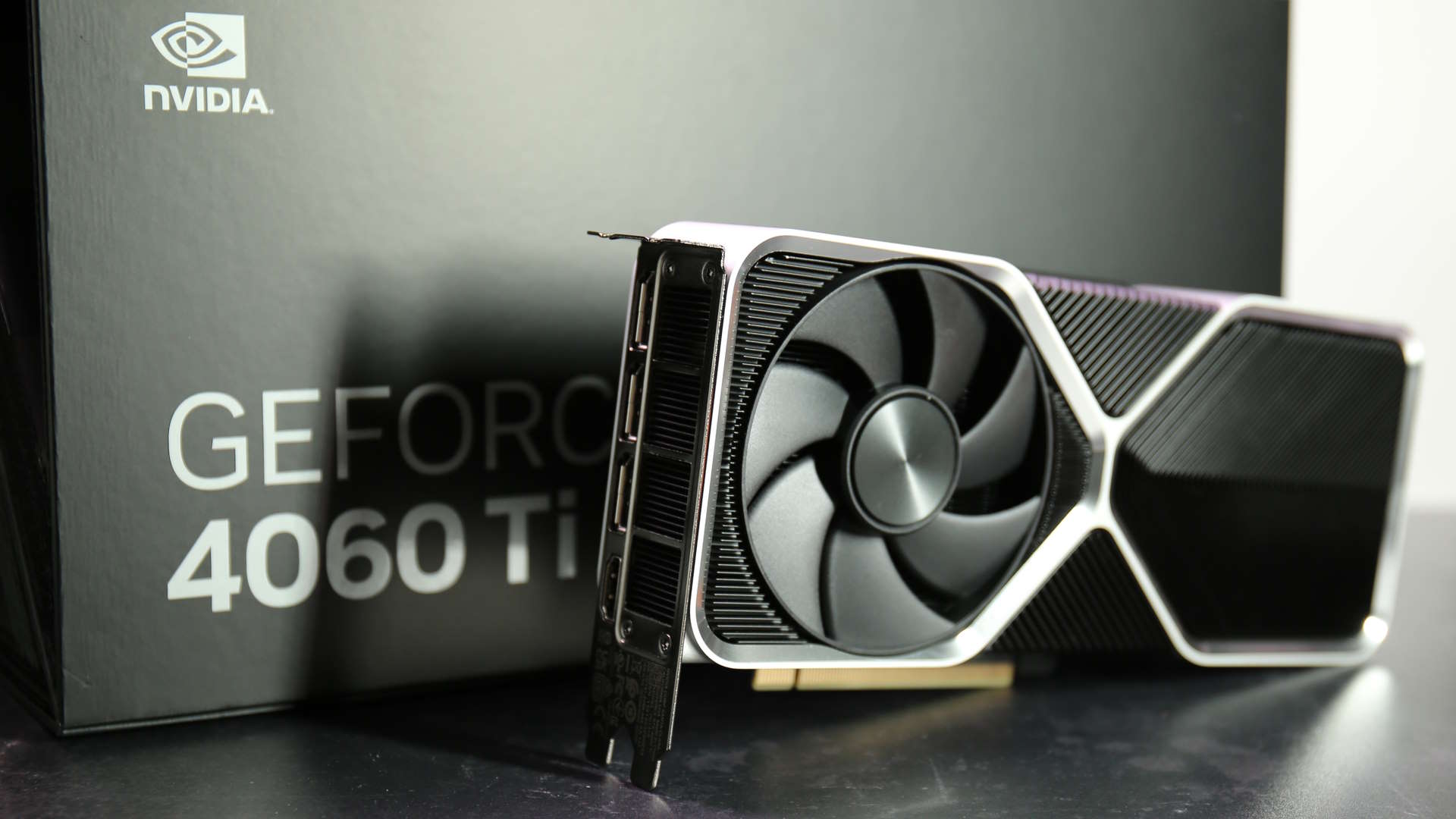
Say what you like, gaming isn't the big thing for Jen-Hsun and co. right now.
Outside the RTX 4090, this generation of graphics cards haven’t been universally well regarded, with the RTX 4060 Ti probably the worst reviewed GPU for Nvidia in a long time. But who cares when you’re expecting to make $11 billion in the next few months.
‘You don’t like our new graphics cards? Boo hoo. We’ve got bigger AI to fry.’
Nvidia has just revealed its Q1 2024 earnings, and no, that’s not a typo, nor has time inexorably sped up. The green team just doesn’t measure time in the same way as the rest of us—to Nvidia we’re already rolling into the second quarter of 2024 in its fiscal terminology.
Whatever, the news is that in Q1, while it’s made significantly more money than the last financial quarter of FY2023, it’s still some 13% down year on year. And in gaming terms it was down 38%. That does not make for pretty reading.
But it’s the predictions that Nvidia’s CFO, Colette Kress, has made for the following three months that are pretty mind-boggling. Mostly because of the numbers involved. Kress is predicting that Nvidia is going to post revenue figures of around $11 billion in the three months up to the end of July 2023. Eleven billion dollars. For reference that’s an increase of 64% over the same period from last year.
It’s certainly not the RTX 4060 or RTX 4060 Ti (whether 8GB or 16GB) that’s going to make all that cash for the green team, as gaming is probably still going to be in the bad books when it comes to the financials. No, it’s the data centre side of the business which is now making Nvidia all its money, because that’s where all the generative AI and large language model (LLM) cash is being spent.
Nvidia is one of the largest suppliers of AI accelerators, and is riding the current AI wave all the way to the bank.
What does that mean for PC gaming? Likely not much. Of course, generative AI is probably going to end up a big deal in game development, but all that extra money flowing into Nvidia’s coffers isn’t going to have an impact on the GPUs we get to slot into our PCs.
(Image credit: Future)
Best CPU for gaming: The top chips from Intel and AMD
Best gaming motherboard: The right boards
Best graphics card: Your perfect pixel-pusher awaits
Best SSD for gaming: Get into the game ahead of the rest
I’d love to say that Nvidia would suddenly be less penny-pinching when it comes to manufacturing GPUs for a certain price point—one of my issues with the RTX 4060 Ti—and I’d love to say that Nvidia would suddenly stop trying to pitch every GPU release at people with unfeasibly large volumes of disposable income. But sadly I doubt any of that’s going to happen.
There’s a chance Jen-Hsung pays less attention to the GeForce side of the business going forward—I mean, he didn’t mention gaming once in the world earnings call and Q&A with analysts—but I wouldn’t expect that to necessarily be a positive for PC gamers.
Gaming isn’t going to become an afterthought for Nvidia overnight, it’s still a relatively strong side of its business. But in the face of an AI revolution, it’s absolutely not the vital piece of the financial puzzle it once was.



